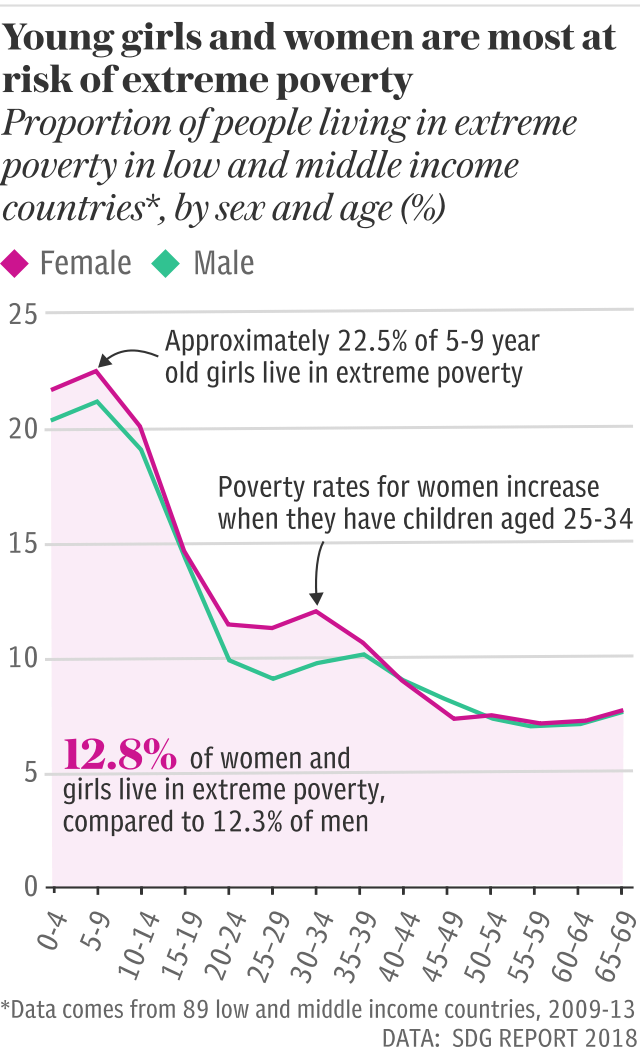As a new breed of global inequality rises, we must unstack the deck holding millions back

In 1964, Dr Strangelove encapsulated Cold War life, unfolding under the constant threat of nuclear fallout. Two decades on, the Breakfast Club captured the anguish and stress of a new generation of teenagers growing up in an increasingly material world.
There are moments in time where a movie can transcend entertainment to capture a unique snapshot of society at that time. As Joker became the highest grossing comic book movie of all time, Joaquin Phoenix’s portrayal of Arthur, a man struggling to be seen or heard, may have summed up the world in 2019 with one pithy line: “Is it just me or is it getting crazier out there?”
On the nightly news, social media and increasingly on our streets, waves of civil unrest reflect the erosion of social cohesion; growing mistrust of government institutions and young people’s frustration at being systematically denied the futures they were promised. Perhaps amplified by the speed at which information now circumnavigates the globe, problems seem both more acute and intractable.
A new UN report released today reflects on the widening inequalities that are driving resentment and protest across the world. Going beyond economics, the report looks at the vast disparities in power and opportunity that are cementing the divide between the haves and have-nots.
Ironically, the report comes at a time when humanity has never had it so good. Over the past three decades, more than a billion people have been lifted out of poverty, child mortality has more than halved and more girls are going to school than ever before.
So why, when things are getting better, are frustrations increasing? There are two reasons.

First, a new breed of inequalities has sprung up, often unseen by policy makers focused on the way development challenges looked in the 1990s.
Second, income is not everything. People believe there is much more to life than a paycheck. Our report finds that a lack of access to opportunities that give people the ability to build a future is causing resentment and a sense of powerlessness.
For example, in low income countries, owning a mobile phone is no longer considered a luxury for most people but access to broadband is and it is growing 15 times faster in the richest countries.
Illiteracy is also rapidly becoming a thing of the past, but there is a fast-growing gap in access to university places, with tertiary education growing six times more quickly in the rich nations than in poorer ones.
With a growing middle class better connected through the internet, even those in the most remote places today can see how others live. As gaps like these grow so, too, does discontent.
That sense of powerlessness is reinforced by the rise of transnational organisations that spend more in lobbying to skew the rules in their favor, than they do in taxes.
As the pace of automation speeds up, traditional jobs are already being wiped out because machines can do them faster and better. Tensions are running high because people feel that the system is increasingly rigged against them.

Despite the similarities in the predicaments they face, many countries are turning inwards. At a time when we need more global cooperation, the rise in isolationism and nationalism is making it harder to develop the cross-border solutions needed to manage inequalities.
How do we fix this?
Addressing the problem must involve universal provision of quality health services, access to tertiary education, well-paid work and a retirement to look forward to. World leaders must also renew efforts to meet the basic needs of those left furthest behind.
Taxation doubtlessly has an important part to play but our collective fixation on it has narrowed the policy debate. Discussion on taxes needs to be supported by a robust plan for how they will effectively be spent to enhance the public good without the most vulnerable footing an unfair share of the bill.
Decision-makers should also prevent the wealthiest from concentrating power. Working with their citizens, they should prevent prevent political power becoming a mirror image of economic power. Governments must challenge the corporations that are running roughshod over laws and rights that have taken centuries to develop.
Whether a failed comedian gone rogue becomes the prophet of escalating social unrest will depend on whether leaders can confront entrenched interests that their predecessors skirted, effectively writing off future generations. Inequality is not inevitable. But to get rid of the Joker, we must unstack the deck.
Achim Steiner is Administrator of the United Nations Development Programme

Protect yourself and your family by learning more about Global Health Security

 Yahoo News
Yahoo News 
